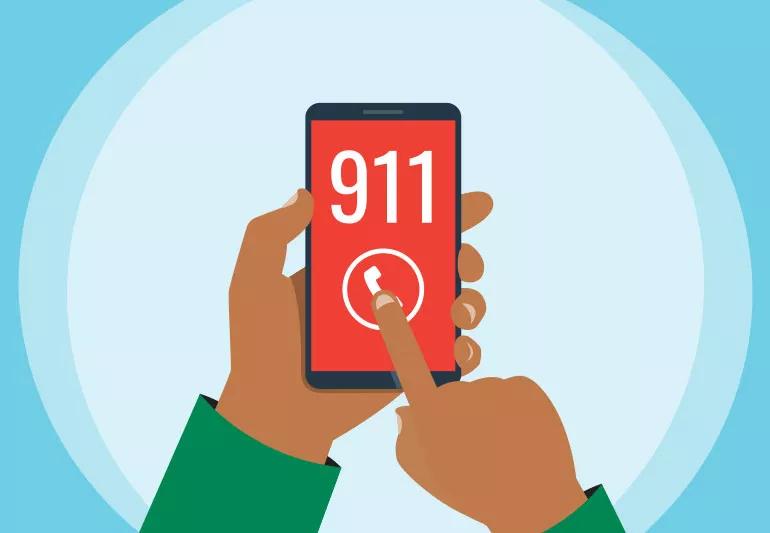Get the answer from an interventional cardiologist

Image content: This image is available to view online.
View image online (https://assets.clevelandclinic.org/transform/10c04fae-0fd8-467b-9162-23dd3e139560/call911-1324813399-770x533-1_jpg)
Illustration of a person holding phone and dialing 911
According to the U.S. Centers for Disease Control and Prevention (CDC), every 40 seconds, someone has a heart attack in this country. Every year, about 805,000 people have a heart attack. Of that number, 605,000 are first heart attacks. And 1 in 5 heart attacks is a silent one, meaning the person isn’t aware that it’s even happening.
Advertisement
Cleveland Clinic is a non-profit academic medical center. Advertising on our site helps support our mission. We do not endorse non-Cleveland Clinic products or services. Policy
So, what should you do if someone is having a heart attack? Interventional cardiologist Leslie Cho, MD, offers some helpful advice that can save a life.
Heart attack symptoms can range from shortness of breath to a feeling of impending doom. Some other common symptoms of a heart attack include:
While women have chest pain/pressure like men, they’re more likely to experience shortness of breath, nausea/vomiting and back or jaw pain.
In an emergency, it’s easy to panic. But staying calm helps ensure that your family member or friend (or even yourself) gets help — fast.
“A heart attack is a serious medical emergency and calling 911 is the fastest way to get lifesaving treatment,” stresses Dr. Cho. “This is because the emergency medical service workers can begin interventions immediately when they arrive and on the way to the hospital.”
If you, or the person having the heart attack, have been prescribed chest pain medications, like nitroglycerin, use it. For those who don’t have chest pain medication, some healthcare providers recommend slowly chewing 325 milligrams of aspirin to help to minimize heart damage or prevent the development of a dangerous blood clot. But only do this if there isn’t a prior history of an aspirin allergy or a medical condition that could worsen because of it.
Advertisement
As you’re waiting for emergency care, try to remain calm, loosen any clothing and rest. If you suspect you’re having a heart attack, don’t eat or drink anything outside of medication, and if someone else is having a heart attack, don’t allow them to do so either.
In the event the person you’re observing becomes unconscious and unresponsive, call 911 and check for a pulse. If there is no pulse, start CPR.
If it’s a child or infant, always do one minute of CPR before calling 911.
Again, if you have the slightest suspicion that someone (or even you) is having a heart attack, the first and most important thing to do is to call 911. Don’t call your healthcare provider or drive to the hospital. This can waste precious time for treatment. And certainly don’t wait and hope symptoms will disappear on their own. There’s no penalty if it turns out to be a false alarm.
Advertisement

Sign up for our Health Essentials emails for expert guidance on nutrition, fitness, sleep, skin care and more.
Learn more about our editorial process.
Advertisement
There’s no way to stop it once a heart attack is happening, but the most important thing you can do is to call for help
To help determine what you’re experiencing, focus on how the pain feels, the location of the pain, when it started and how long it lasts
Stopping this critical medication on your own increases the risk of heart attack, stroke and more
Symptoms may be mild, but don’t be fooled — any heart attack is serious
Subtle heart attack warning signs include pressure, cold sweats and fatigue
Sedentary lifestyles are driving up heart attack numbers in the under-40 crowd
Lifestyle choices involving food, exercise, sleep and more can help reduce your risk
When symptoms are muted, listen closely to your body
Type 2 diabetes isn’t inevitable with these dietary changes
Applying a hot or cold compress can help with pain
Pump up your iron intake with foods like tuna, tofu and turkey